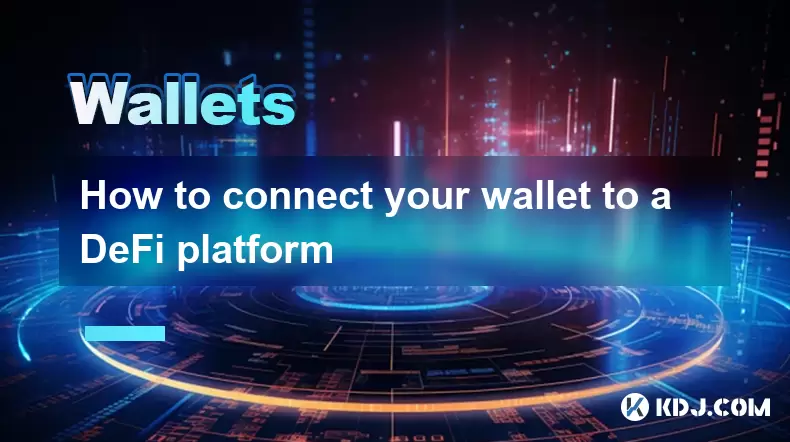-
 Bitcoin
Bitcoin $117600
0.25% -
 Ethereum
Ethereum $4424
0.10% -
 XRP
XRP $3.101
0.50% -
 Tether USDt
Tether USDt $1.001
-0.01% -
 BNB
BNB $836.2
1.26% -
 Solana
Solana $188.8
2.11% -
 USDC
USDC $1.000
0.01% -
 Dogecoin
Dogecoin $0.2301
0.57% -
 TRON
TRON $0.3485
-1.00% -
 Cardano
Cardano $0.9209
-1.34% -
 Hyperliquid
Hyperliquid $46.72
-1.19% -
 Chainlink
Chainlink $22.62
4.84% -
 Stellar
Stellar $0.4275
-0.38% -
 Sui
Sui $3.761
1.91% -
 Bitcoin Cash
Bitcoin Cash $586.7
-0.25% -
 Ethena USDe
Ethena USDe $1.001
0.01% -
 Hedera
Hedera $0.2510
2.06% -
 Avalanche
Avalanche $24.21
2.22% -
 Litecoin
Litecoin $119.7
1.07% -
 Toncoin
Toncoin $3.450
1.06% -
 UNUS SED LEO
UNUS SED LEO $9.411
-0.93% -
 Shiba Inu
Shiba Inu $0.00001298
1.20% -
 Uniswap
Uniswap $10.98
3.25% -
 Polkadot
Polkadot $3.961
2.16% -
 Dai
Dai $1.000
0.00% -
 Bitget Token
Bitget Token $4.642
0.95% -
 Cronos
Cronos $0.1514
0.57% -
 Ethena
Ethena $0.7290
3.78% -
 Monero
Monero $254.1
7.69% -
 Pepe
Pepe $0.00001102
2.47%
How to prevent Ethereum wallet from being invaded by malware?
Protect your Ethereum with robust security: use reputable, updated software; consider a hardware wallet; secure your network; and employ strong passwords, 2FA, and regular transaction reviews.
Mar 18, 2025 at 09:13 pm

Key Points:
- Understanding the threat landscape: Malware specifically targets Ethereum wallets to steal private keys and funds.
- Secure software practices: Using reputable software and keeping it updated is crucial.
- Hardware security: Hardware wallets offer superior protection against malware.
- Network security: Protecting your computer and network from intrusion is paramount.
- Best practices: Implementing strong passwords, enabling two-factor authentication, and regularly reviewing transactions are vital.
How to Prevent Your Ethereum Wallet from Being Invaded by Malware
The decentralized nature of Ethereum, while offering many advantages, also leaves users vulnerable to malicious actors. Malware, specifically designed to target Ethereum wallets, poses a significant threat. These malicious programs aim to steal your private keys, granting attackers complete control over your funds. Understanding the various attack vectors and implementing robust security measures is crucial to protecting your Ethereum holdings.
Understanding the Threat Landscape
Malware can infiltrate your system through various methods, including phishing emails containing malicious attachments or links, compromised websites, and even seemingly legitimate software downloads. Once installed, this malware can silently monitor your activity, searching for your Ethereum wallet's private keys or seed phrase. These keys are the sole access point to your funds, making their compromise devastating. The sophistication of these attacks continues to evolve, requiring constant vigilance.
Secure Software Practices
Using only reputable software sources is fundamental. Avoid downloading wallet software from untrusted websites or through unofficial channels. Always verify the authenticity of the software developer and check for user reviews before installation. Regularly update your wallet software to benefit from the latest security patches. Outdated software is particularly vulnerable to exploits.
Hardware Wallets: A Superior Defense
Hardware wallets provide an extra layer of security by storing your private keys offline. Unlike software wallets, which reside on your computer and are thus susceptible to malware, hardware wallets keep your keys physically isolated. This makes them significantly more resistant to malware attacks and other forms of digital theft. Consider a hardware wallet as an essential investment for securing substantial Ethereum holdings.
Network Security: Protecting Your Digital Fortress
A compromised computer is an easy target for malware. Employ robust antivirus and anti-malware software, keeping it up-to-date with the latest virus definitions. Regularly scan your system for malware and consider using a firewall to control network traffic and block unauthorized access. Strong passwords and secure Wi-Fi networks are equally important.
Best Practices for Ethereum Wallet Security
- Strong Passwords: Use unique, complex passwords for your wallet and all related accounts. Avoid reusing passwords across different platforms. Password managers can help generate and manage strong, unique passwords.
- Two-Factor Authentication (2FA): Enable 2FA whenever possible. This adds an extra layer of security, requiring a second verification method (like a code from your phone) in addition to your password.
- Regular Transaction Review: Regularly check your wallet's transaction history to detect any unauthorized activity. Report any suspicious activity immediately to the appropriate authorities.
- Seed Phrase Security: Your seed phrase is crucial. Treat it like a bank vault key. Never share it with anyone, and store it securely offline in a physically protected location.
- Software Updates: Keep your operating system, antivirus software, and wallet software updated with the latest security patches. Outdated software is vulnerable to known exploits.
- Beware of Phishing: Be wary of unsolicited emails, messages, or websites requesting your private keys or seed phrase. Legitimate organizations will never ask for this information.
- Offline Backup: Create regular backups of your wallet data, but store these backups securely offline. Cloud storage is not recommended for storing sensitive wallet information.
Common Questions:
Q: My Ethereum wallet was compromised. What should I do?
A: Immediately change your passwords, contact your exchange (if applicable), and report the incident to the relevant authorities. Monitor your accounts closely for any further unauthorized activity.
Q: Is it safe to use a mobile Ethereum wallet?
A: Mobile wallets can be convenient, but they are generally less secure than hardware wallets due to their increased vulnerability to malware and potential device loss. Use reputable apps and strong security practices.
Q: How often should I update my Ethereum wallet software?
A: Update your wallet software as soon as updates are released. Security patches often address critical vulnerabilities that could expose your funds to theft.
Q: Can I recover my Ethereum if my wallet is lost or stolen?
A: If you have a secure backup of your seed phrase, you can recover your Ethereum. However, if your seed phrase is compromised or lost, recovery is likely impossible.
Q: What is the best way to store my seed phrase?
A: Store your seed phrase offline in a secure, physically protected location. Consider using a metal plate, a safety deposit box, or a physical, tamper-evident device designed for seed phrase storage. Never store it digitally.
Disclaimer:info@kdj.com
The information provided is not trading advice. kdj.com does not assume any responsibility for any investments made based on the information provided in this article. Cryptocurrencies are highly volatile and it is highly recommended that you invest with caution after thorough research!
If you believe that the content used on this website infringes your copyright, please contact us immediately (info@kdj.com) and we will delete it promptly.
- Kazakhstan's Crypto Leap: Bitcoin ETF and Central Asia's Digital Finance Future
- 2025-08-13 12:45:19
- BlockDAG Presale Blazes Past $371M: Fundraising Frenzy Fuels Crypto Sensation
- 2025-08-13 13:05:21
- Meme Coins: Chasing the 2025 Surge – Which Will Moonshot?
- 2025-08-13 10:25:23
- Bitcoin's Wild Ride: Rally, Pullback, and What's Next
- 2025-08-13 10:25:23
- Bitcoin, Bitmax, and Institutional Demand: A New Era of Crypto Investment
- 2025-08-13 10:45:12
- Solana, ROAM, and Airdrops: What's the Buzz in 2025?
- 2025-08-13 11:35:13
Related knowledge

How to wrap Ethereum (wETH) in MetaMask
Aug 13,2025 at 11:36am
Understanding Wrapped Ethereum (wETH)Wrapped Ethereum (wETH) is a tokenized version of native Ethereum (ETH) that conforms to the ERC-20 standard, ena...

How to manage your portfolio in Exodus wallet
Aug 08,2025 at 10:07pm
Understanding the Exodus Wallet InterfaceThe Exodus wallet is a non-custodial cryptocurrency wallet that supports a wide range of digital assets. When...

How to manage your portfolio in Exodus wallet
Aug 13,2025 at 11:35am
Understanding the Exodus Wallet InterfaceThe Exodus wallet is a non-custodial cryptocurrency wallet that supports a wide range of digital assets. Upon...

How to reset your MetaMask password
Aug 08,2025 at 01:28pm
Understanding the MetaMask Password Reset ProcessMany users confuse the MetaMask password with the seed phrase or private key, but they serve differen...

How to use WalletConnect with Trust Wallet
Aug 13,2025 at 01:07am
What Is WalletConnect and Why It Matters for Trust Wallet UsersWalletConnect is an open-source protocol that enables secure communication between dece...

How to connect your wallet to a DeFi platform
Aug 13,2025 at 11:36am
Understanding Wallet Compatibility with DeFi PlatformsBefore connecting your wallet to any DeFi platform, it's essential to ensure your wallet is comp...

How to wrap Ethereum (wETH) in MetaMask
Aug 13,2025 at 11:36am
Understanding Wrapped Ethereum (wETH)Wrapped Ethereum (wETH) is a tokenized version of native Ethereum (ETH) that conforms to the ERC-20 standard, ena...

How to manage your portfolio in Exodus wallet
Aug 08,2025 at 10:07pm
Understanding the Exodus Wallet InterfaceThe Exodus wallet is a non-custodial cryptocurrency wallet that supports a wide range of digital assets. When...

How to manage your portfolio in Exodus wallet
Aug 13,2025 at 11:35am
Understanding the Exodus Wallet InterfaceThe Exodus wallet is a non-custodial cryptocurrency wallet that supports a wide range of digital assets. Upon...

How to reset your MetaMask password
Aug 08,2025 at 01:28pm
Understanding the MetaMask Password Reset ProcessMany users confuse the MetaMask password with the seed phrase or private key, but they serve differen...

How to use WalletConnect with Trust Wallet
Aug 13,2025 at 01:07am
What Is WalletConnect and Why It Matters for Trust Wallet UsersWalletConnect is an open-source protocol that enables secure communication between dece...

How to connect your wallet to a DeFi platform
Aug 13,2025 at 11:36am
Understanding Wallet Compatibility with DeFi PlatformsBefore connecting your wallet to any DeFi platform, it's essential to ensure your wallet is comp...
See all articles

























































































